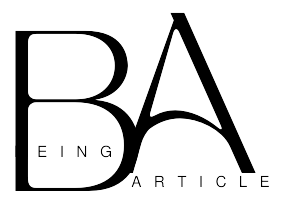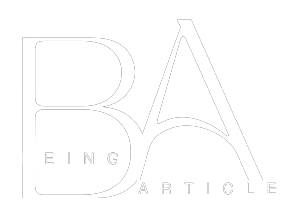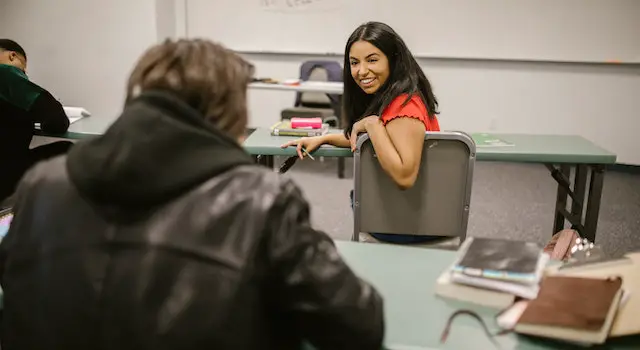How To Ask A Seatmate To Mask?
Flying for business or pleasure can be stressful. But adding a pandemic into the mix can add an extra layer of anxiety.
One of the biggest stresses on a plane is dealing with a seatmate who doesn’t wear a mask. That’s why it’s essential to ask your companion to put on their mask when flying.
Should You Wear a Mask on a Plane?
Since a federal judge overturned the Centers for Disease Control and Prevention’s mandate to wear masks during flights, bus commutes, and train rides, American travelers have had to adjust to an unfamiliar reality. While most major airlines have eliminated their mask requirements for domestic and international passengers, many others still insist upon them.
But what should you do if you find yourself in this predicament? Can you request your seatmate to put on a mask, or could it be best to avoid contact with them altogether?
Experts advise choosing a mask with maximum protection that is comfortable and effortless to take off to maximize your safety.
Finally, be sure to practice good hand hygiene throughout your travels. Not only is this an invaluable habit in any circumstance, but it can be especially helpful when protecting yourself against COVID-19 and other airborne viruses.
Be mindful that most flight attendants will enforce their policies even if they don’t agree with them. Some may even chastise you for not wearing a mask or sneezing in the aisle.
If you find yourself stuck with an unmasked passenger, etiquette experts suggest asking for space — six feet or more — whenever possible. But remember that it may be difficult to do this on board a crowded aircraft, so it’s best to plan.
The COVID-19 pandemic has drastically altered our travel habits, with many countries now requiring face masks to be worn in public places like airports and on airplanes. But should you wear your mask while flying? That remains to be determined.
Airplanes employ an intricate air circulation system that circulates air and filters out pollutants. Unfortunately, while this filtration is effective, it does not guarantee 100% cleanliness. Furthermore, this doesn’t necessarily prevent virus spread between passengers.
It’s essential to wear your mask correctly. Make sure you wash your hands before putting on the mask and avoid touching anything on either your mask or face while wearing it. If you need to adjust it, only touch its ear loops or ties.
Overall, wearing a mask on an airplane is an essential step in protecting yourself and others from COVID-19. The Centers for Disease Control and Prevention (CDC) advise wearing masks in all public settings – including airplanes – with one that fits properly and has multiple layers of fabric. By taking these steps, you can help reduce the spread of COVID-19 and keep yourself and others safe.
How Can I Protect Myself From Covid on a Plane?
When taking a flight, the best way to safeguard against Covid is by wearing a mask. This is especially crucial if you have a fever or cough; additionally, ensure not to touch anything contaminated by the virus, such as tray tables and armrests.
Many airlines have taken steps to reduce the risk of contracting COVID-19, such as social distancing and restricting food and drink service. They have also disinfected cabins between flights for extra sanitation.
Even if you don’t take these precautions, your risk of contracting Covid is very low. Airplanes boast advanced air filtration systems to keep germs at bay, and modern jets recycle cabin air between rows in front and behind you for added air purification.
Most people contract the virus by breathing in droplets produced when someone coughs or sneezes. However, research has demonstrated that the virus can survive on surfaces for 72 hours. You could also contract it by touching something contaminated with the virus and then touching your face.
Avoid contracting Covid by limiting your contact with other passengers on the plane, such as going to the toilet before boarding and sitting in a window seat instead of an aisle seat. If possible, ask for a seat upgrade or move to the next row so you don’t sit with someone who may be sick.
Your seat has air vents on the ceiling to ventilate your cabin. These are filtered to remove most airborne germs and viruses before exiting from your vent, and they’re replaced every two to three minutes with a half-and-half mix of recycled and fresh air.
Other ways to protect yourself from the virus include keeping your hands as clean as possible during and after your flight. This means washing them frequently with hand sanitizer containing at least 60% alcohol. Furthermore, antibacterial wipes can be used on surfaces around you, such as tray tables, armrests, and seat belt buckles, to disinfect them from germs.
Due to the ongoing COVID-19 pandemic, traveling by plane may seem intimidating. However, with proper precautions, you can protect yourself from COVID-19 while on board a plane. Here are some tips for staying safe:
Wear a Mask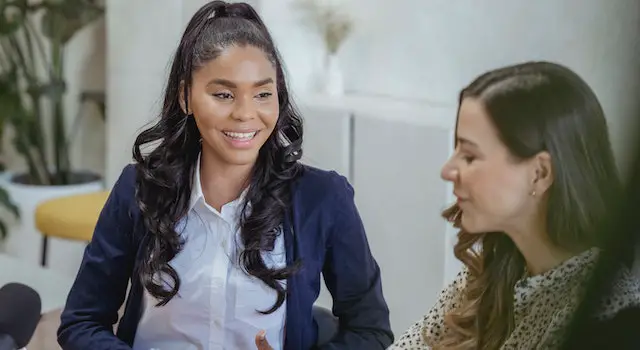
The Centers for Disease Control and Prevention (CDC) recommend wearing a mask in all public settings, including airplanes. Make sure the mask covers your nose and mouth completely and is constructed of multiple layers of fabric. Avoid masks with exhalation valves or vents since these do not provide adequate protection.
Choose Your Seat Wisely
When selecting a seat on an airplane, try to opt for a window seat if possible. This will minimize contact with other passengers since people tend to walk past you less. If a window seat is unavailable, opt for an aisle seat and try not to sit in the middle seat; some airlines are currently blocking middle seats to promote social distancing, but this policy may not be in effect across all flights.
Practice Good Hand Hygiene
Wash your hands frequently and use hand sanitizer when soap and water aren’t available. Bring along a portable hand sanitizer as well as disinfecting wipes for use on high-touch areas like armrests, tray tables, and seat belts.
Bring Your Food and Beverages
Bring your food and drinks to minimize contact with flight attendants and passengers. Be wary of consuming any items the airline provides as they have likely been handled by multiple individuals.
Avoid Touching Your Face
Avoid touching your face during a flight, as this can spread viruses from your hands directly into your mouth, nose, or eyes. If you must touch someone onboard, wash your hands before doing so.
Stay Home If You Feel Sick
If you are feeling unwell, it is best to postpone your travel plans. Many airlines now provide accommodating cancellation policies for travelers who must alter their plans due to illness.
Is It Alright to Ask Another Passenger About Their Vaccination Status?
Vaccines contain killed or weakened versions of disease-causing germs designed to stimulate the immune system to recognize and destroy these antigens. That way, when exposed to these germs, your immunity will kick in before you become ill – this is known as immunity, and it’s the best way to protect yourself from illness caused by certain germs through vaccination.
On an airplane, it’s usually unsafe to inquire about your seatmate’s vaccine status unless you are medically supervised. But if you still want to find out, search online for their name and contact info or use an app such as Traveler’s Checklist (available in the App Store). On shorter flights, crew members may have more access to information; usually, they’ll have a phone number available that you can call.
The COVID-19 pandemic has brought about significant changes to how we travel, with many people questioning if it’s appropriate to ask another passenger about their vaccine status. While it’s understandable to be concerned for your safety and those around you, asking someone about their vaccine status can be a delicate subject. Here are some things to think about before asking:
Privacy Concerns
While taking precautions to protect yourself and others from COVID-19, it’s equally essential to respect people’s privacy. People may feel uneasy sharing their vaccine status, so we must respect that decision. Asking someone about their vaccination status could be seen as intrusive, so it is best to approach the situation with tact and sensitivity.
The Effectiveness of Vaccinations
While getting vaccinated can protect you from COVID-19, it’s essential to remember that vaccines are not 100% reliable. Even if someone has had all their shots, there remains the chance they could still contract the virus or spread it elsewhere. Thus, regardless of someone’s vaccine status, good hygiene and social distancing should still be practiced.
Airline Policies
Some airlines have implemented policies requiring proof of vaccination or a negative COVID-19 test before boarding a flight. If you are worried about traveling with unvaccinated individuals, consider booking your flight with an airline that has these policies in place.
Alternatives to Asking
Instead of directly asking someone about their vaccine status, there are other ways to protect yourself and those around you. Wear a mask, practice social distancing, and practice good hygiene. You could also consider booking a flight during off-peak hours when there may be fewer passengers on board.
What if My Seatmate Tells Me to Get Lost?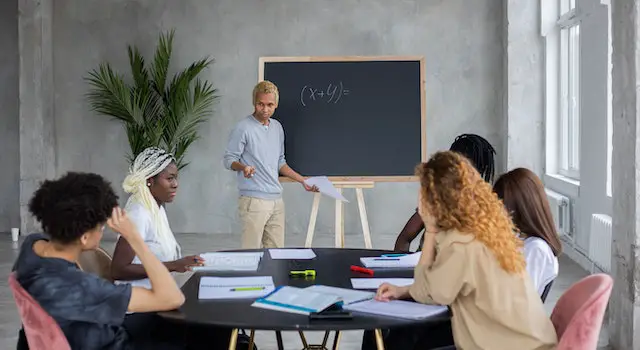
If your seatmate doesn’t want to speak with you, they may have a valid reason. It could be that they’re feeling uncomfortable or trying to get some work done during the flight. Elaine Swann, an etiquette expert and former flight attendant suggests making it as comfortable for them as possible. Elaine suggests bringing earplugs in case of loud conversations and cologne/perfume in case of smelly passengers.
Gaining some understanding of your seatmate can help ease some tension. Saying hello when you first sit down is polite, but don’t make it a long conversation. Instead, smile politely and move on to something else that won’t embarrass them later. If it becomes necessary for some lighthearted conversation, try engaging them in lighthearted activities which might reduce their discomfort or give you some insights into their thoughts and feelings.
Traveling during the COVID-19 pandemic can be stressful and anxiety-inducing, particularly when interacting with other passengers. While it’s essential to take measures for your protection and that of those around you, remember that not everyone feels the same way. If your seatmate tells you they don’t need vaccination status information or asks that they wear a mask, here are some things to keep in mind:
Stay Calm
It can be challenging to remain composed when someone is rude or dismissive, but you must try your best to remain composed and level-headed. Engaging in an argument or confrontation only serves to escalate the situation and make things worse. Take a deep breath and try your best to approach the situation with an objective mind.
Respect Their Boundaries
While taking steps to safeguard yourself and those around you is essential, it’s also essential to respect other people’s boundaries. If someone tells you to leave or refuses your request, respect their decision and don’t try to push through. Pressuring someone or continuing engagement could be seen as aggressive or confrontational.
Ask for Assistance
If you feel uneasy or unsafe, don’t hesitate to ask for assistance from a flight attendant or other airline staff member. They have been trained in handling such scenarios and can help mediate the conflict or find an amicable solution that benefits everyone involved.
While it’s essential to be mindful of those around you, focus on what you can control. Ensure you’re wearing a mask, practicing good hygiene, and social distancing as much as possible. Consider bringing in disinfectant wipes and hand sanitizer from home, so your space remains clean and germ-free.
FAQ’s
How do I ask my seatmate to wear a mask?
To ask your seatmate to wear a mask, approach the situation calmly and politely. You could say something like, “Excuse me, would you mind putting on your mask? I would feel more comfortable if we both wore one.” It’s important to approach the situation with empathy and understanding, as some people may forget or have a valid reason for not wearing a mask.
What if my seatmate refuses to wear a mask?
If your seatmate refuses to wear a mask, it’s important to prioritize your own safety and wellbeing. You could try to switch seats if there are other available seats, or ask a flight attendant or staff member for assistance. You can also consider filing a complaint with the airline or transportation company after your trip.
Should I wear a mask even if my seatmate doesn’t?
Yes, it’s recommended that you wear a mask even if your seatmate doesn’t. Wearing a mask helps protect both yourself and others from the spread of COVID-19 and other respiratory illnesses.
What if my seatmate is eating or drinking and takes off their mask?
If your seatmate is eating or drinking and takes off their mask, it’s understandable. You could ask them to put their mask back on once they finish eating or drinking, or try to maintain a safe distance from them during that time.
Can I bring my own mask for my seatmate to wear?
Yes, you can bring an extra mask for your seatmate to wear if they don’t have one. You could offer it to them politely, and they can decide whether or not to wear it.
What if I feel uncomfortable asking my seatmate to wear a mask?
If you feel uncomfortable asking your seatmate to wear a mask, you could ask a flight attendant or staff member for assistance. They are trained to handle these types of situations and can help ensure everyone’s safety and wellbeing.
